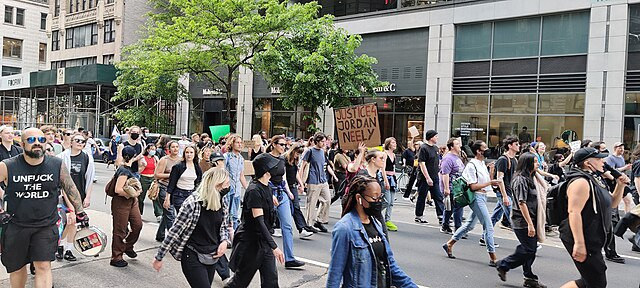Daniel Penny, a former Marine, was acquitted on Monday of criminally negligent homicide in the death of Jordan Neely, a 30-year-old homeless man, whose fatal encounter on a New York City subway in May 2023 ignited heated national debate over public safety, mental health, and race. The jury, after nearly 20 hours of deliberation across five days, delivered a verdict that left the courtroom divided, with some expressing relief and others erupting in anger.
Neely's death, captured in bystander videos, occurred when Penny restrained him in a chokehold during an erratic outburst on a subway train in Manhattan. Witnesses testified that Neely shouted about being hungry and thirsty and claimed he didn't care if he lived or died. Penny's actions, which prosecutors alleged lasted for several minutes, led to Neely's death from neck compression, according to the medical examiner. The trial revolved around whether Penny's intervention was a reckless overreach or a justified act of self-defense to protect passengers.
The verdict prompted an emotional response. In the courtroom, Neely's father, Andre Zachery, was escorted out after loudly sobbing, while others applauded the jury's decision. Outside, protesters chanted "No justice, no peace," underscoring the deep divisions surrounding the case. Activists criticized the decision as emblematic of systemic inequities, with Hawk Newsome, co-founder of New York's Black Lives Matter chapter, declaring, "Racism is still alive and kicking in America... Today, white supremacy got another victory."
The case presented complex legal arguments. Prosecutors asserted that Penny acted recklessly, maintaining the chokehold long after Neely ceased to pose a threat. Assistant District Attorney Dafna Yoran emphasized that Neely, while behaving erratically, did not physically harm or threaten anyone. She argued that Penny's actions reflected a disregard for Neely's humanity, playing video clips in which Penny referred to Neely as a "crackhead." In her closing argument, Yoran said, "You obviously cannot kill someone because they are crazy and ranting and looking menacing."
Penny's defense team countered that his actions were necessary to protect passengers from a perceived threat. Defense attorney Steven Raiser portrayed Penny as a courageous bystander who stepped in when police were absent, relying on his military training to restrain Neely. The defense also challenged the medical examiner's findings, presenting a forensic pathologist who testified that Neely's death was due to a combination of factors, including synthetic drug use, schizophrenia, and a genetic condition.
The jury initially deadlocked on a manslaughter charge, prompting Judge Maxwell Wiley to dismiss it and allow deliberations to continue on the lesser charge of criminally negligent homicide. The defense's request for a mistrial, citing potential jury influence from vocal protests outside the courthouse, was denied. Jurors reviewed hours of video evidence and testimony from over 40 witnesses, including passengers, police officers, and medical experts, before reaching their decision.
The case has heightened public discourse about safety in New York City's subway system and the city's challenges in addressing homelessness and mental illness. Jordan Neely, once a Michael Jackson impersonator, struggled with mental health issues and had a history of arrests. His death has become a flashpoint for discussions about the intersections of race, class, and public policy.
Prominent political figures weighed in, reflecting the case's national implications. Representative Alexandria Ocasio-Cortez described Neely's death as a "murder," while Florida Governor Ron DeSantis praised Penny as a hero. Vice President-elect JD Vance commented on social media, "Justice was done in this case. It was a scandal Penny was ever prosecuted in the first place."
Neely's family expressed profound disappointment with the verdict, with his uncle Christopher Neely stating, "At least give him a charge because it should be some type of penalty that should have been been handed down to Danny Penny period. They gave him no penalty, and I feel like the jury gave up on us." The family has since filed a civil lawsuit against Penny, accusing him of negligence, assault, and battery.




